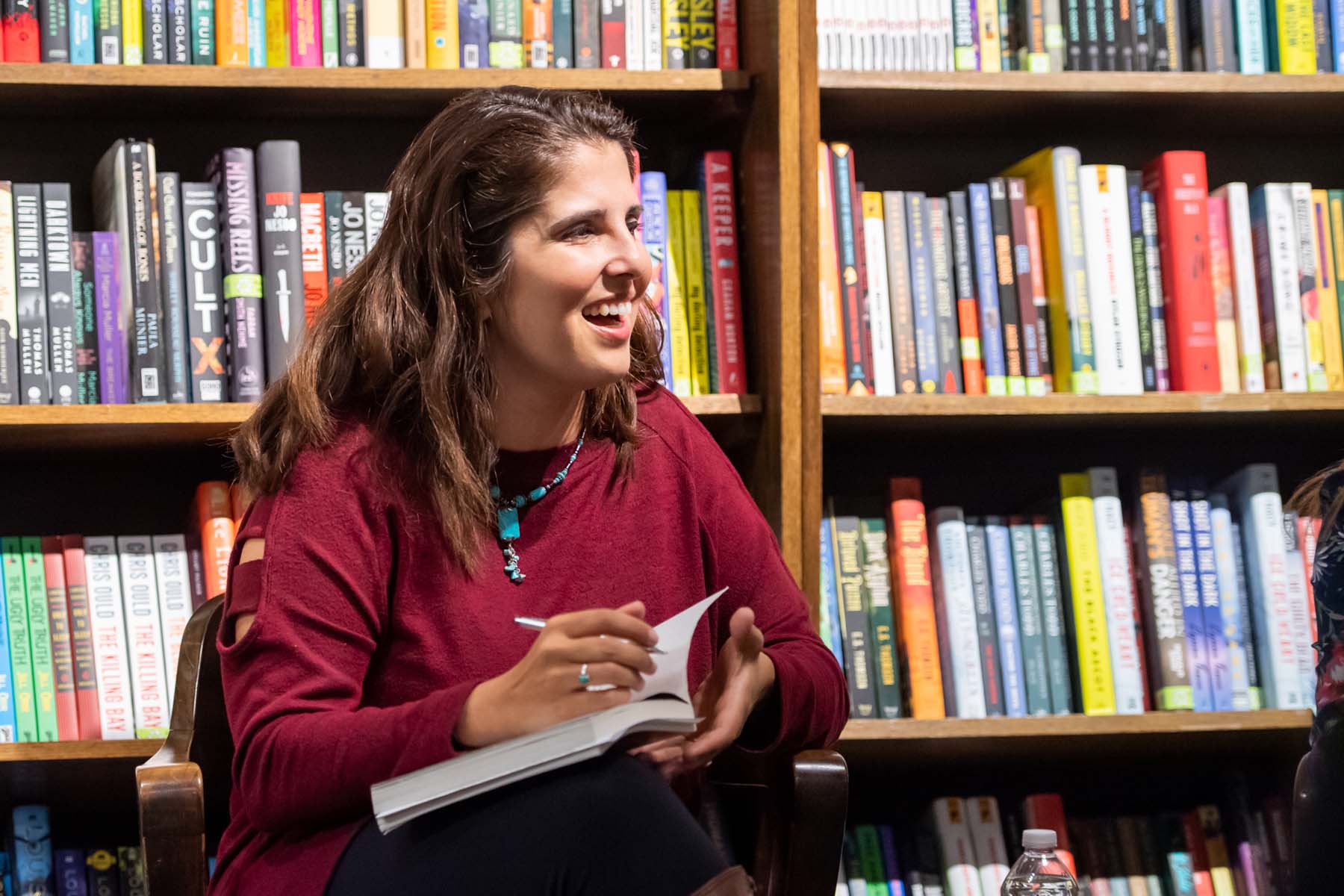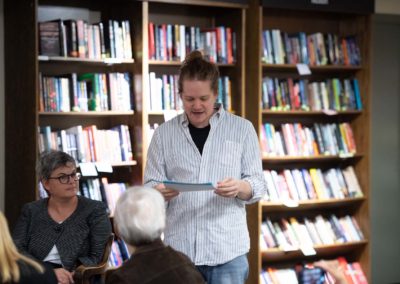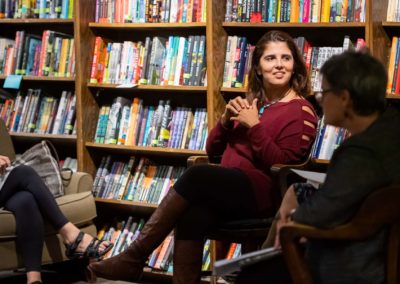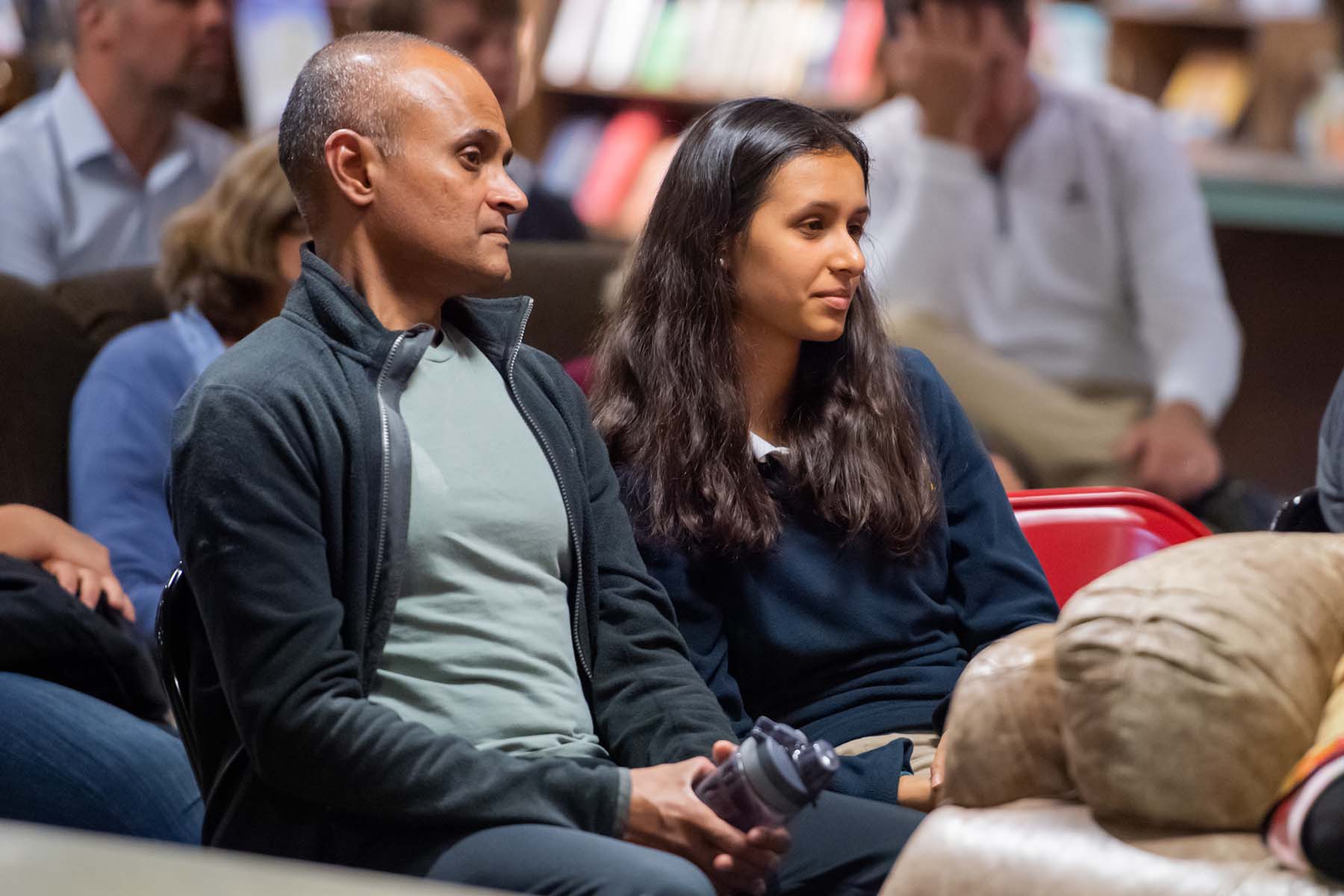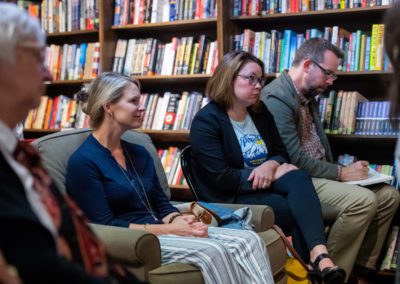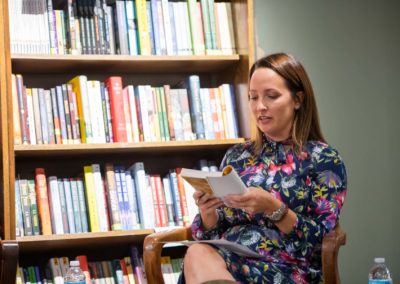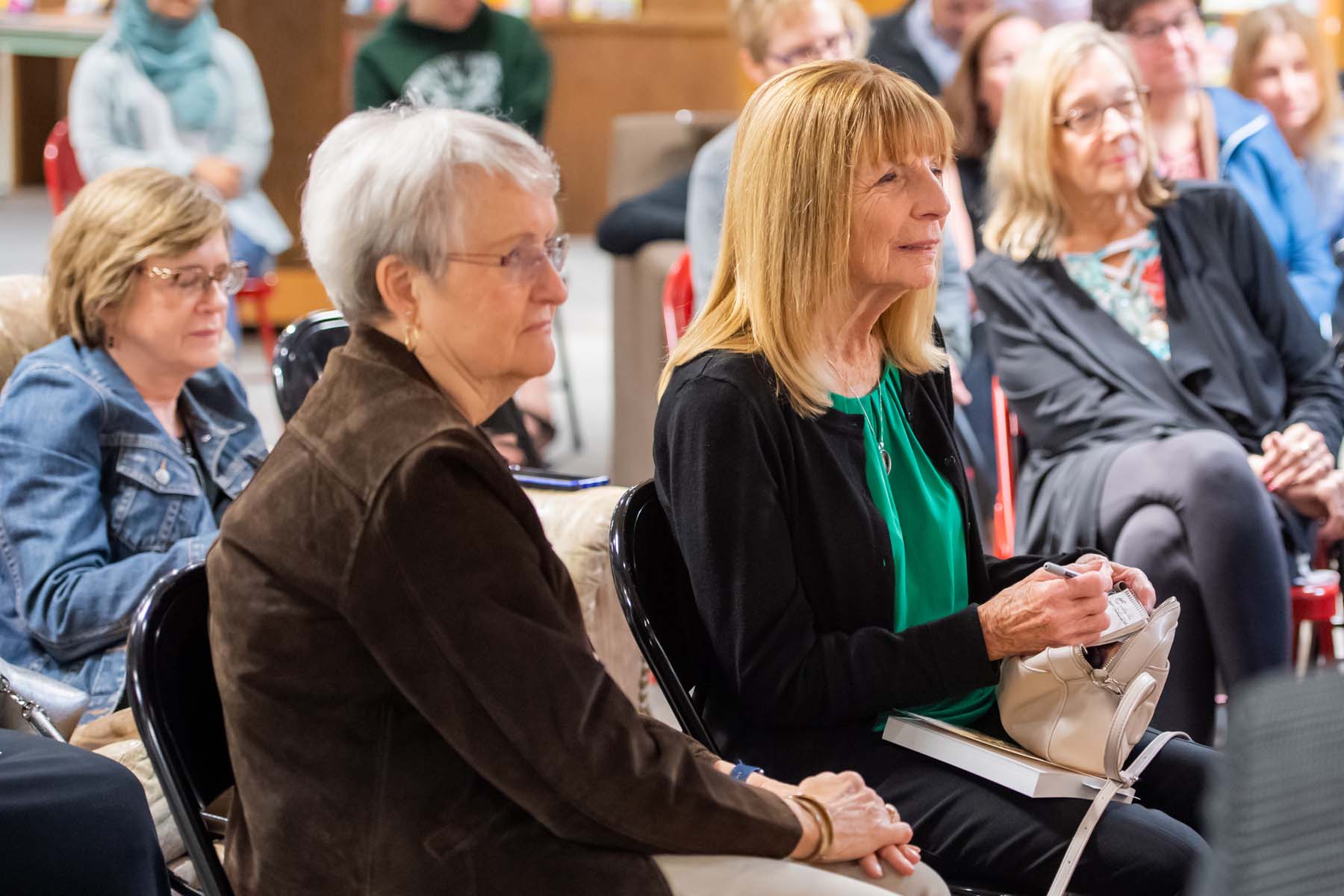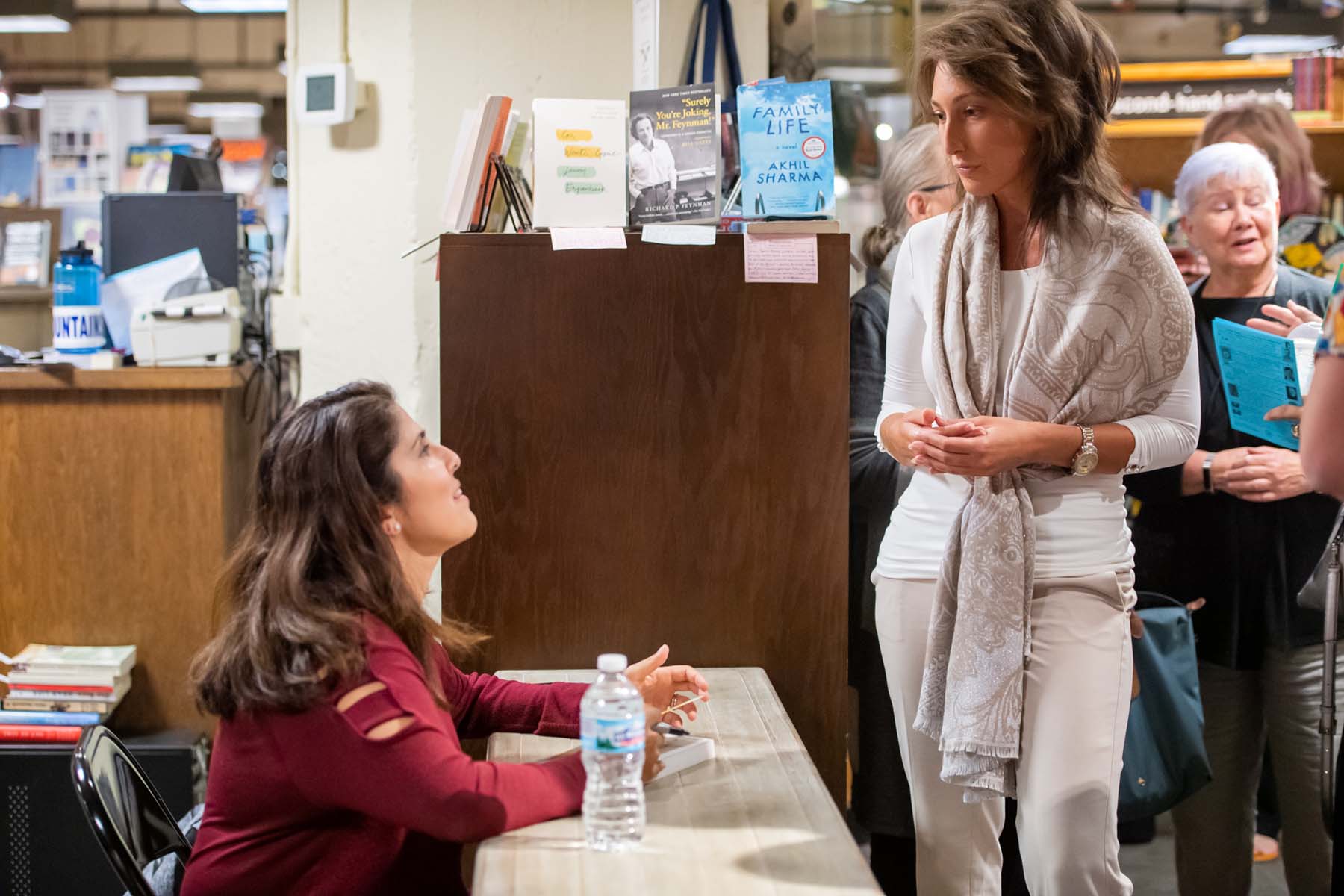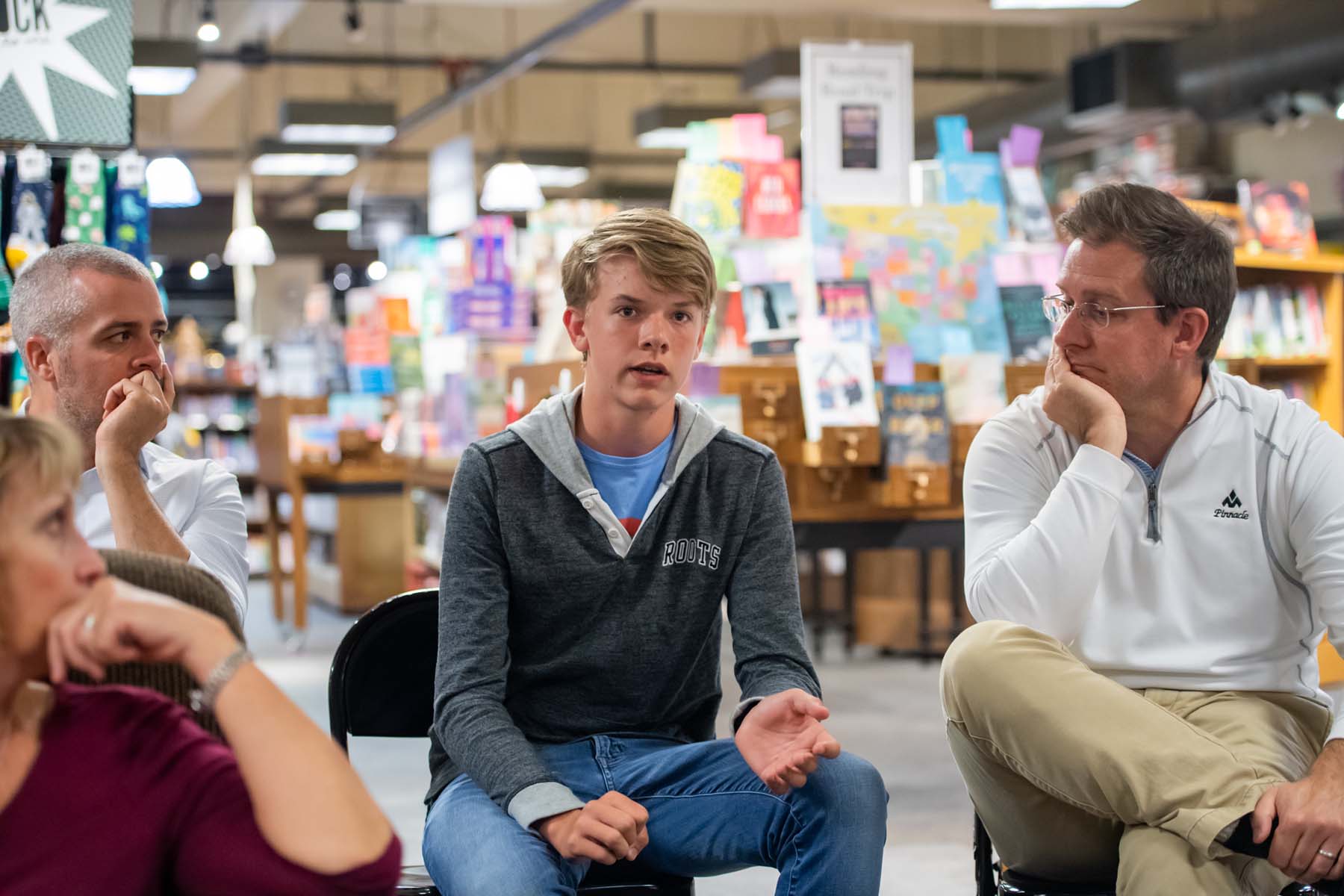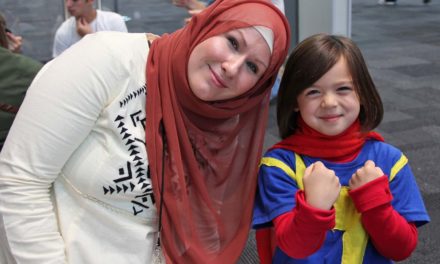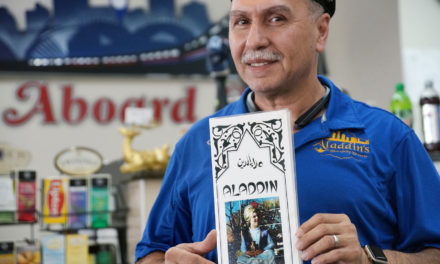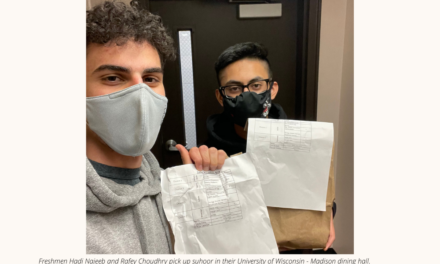© Photo
Mouna Photography for the Wisconsin Muslim Journal
Last Thursday night, the folding chairs and the worn leather sofa at the back of Boswell Books on Downer Avenue were filled with people patiently waiting for the award-winning foreign correspondent and author Atia Abawi. Abawi, who once traveled the world for CNN and NBC, covering everything from the war in Afghanistan to the royal wedding of Kate Middleton and Prince William, was in Milwaukee to promote a book.
When Abawi finally appeared, she was pushing a baby stroller that held her infant daughter. Her husband, former Fox News correspondent Conor Powell,* and her four-year-old son were her entourage. Abawi was instantly recognizable as the beautiful woman from her photographs, but instead of glamorous and intimidating, she came across as warm and approachable, someone who shared many of the same concerns as her audience.
The next day, Abawi was scheduled to be the guest speaker at a University School assembly for grades 9 through 12. The event at Boswell books was a Question & Answer session conducted by Kate Gay and Samantha Adey, both University School teachers, and also included questions from members of the audience.
The author’s visit corresponded with the publication of the paperback version of her second novel, A Land of Permanent Good-byes, which came out in 2018. It is the story of a Syrian teen-ager named Tareq whose life is ripped apart by that country’s civil war. The novel is a page-turner, immediately engaging and suspenseful. In the fast-paced opening chapters, Abawi manages to describe both the life of Tareq’s loving family and how that life is ripped apart, leaving the boy a refugee. But Tareq is one of the lucky ones. He still has a father to lead him and his little sister on the harrowing journey they must undertake in order to survive.
At Boswell books, Abawi answered questions about her journalism career, what led to her decision to become an author of YA novels, and her own experience of being a refugee. She was born in West Germany just one month after her parents escaped from Afghanistan “during the Soviet war in 1981,” Abawi said. She moved to the United States at the age of one and was raised in Virginia.
Writing novels, Abawi said, is “a way to go beyond the two-minute clip” of the nightly news. Her latest novel is “based completely on real events, real interviews,” she said. “It’s one story out of the millions of stories that the Syrian people have gone through. I really felt the need to tell this story. In fact, I was supposed to be writing a different book when the Syrian refugee crisis was on our television screens.” Abawi was living in Jerusalem at the time, and her son was about eight months old. “I was safely holding him in my arms and . . . watching the refugees make their way along the sides of European highways” after “risking their lives, their children’s lives on boats.”
Abawi said those images brought her own experience “back home for myself because my parents were refugees. I was born a refugee.” She believes that, had her parents not decided to flee Afghanistan, “in every outcome that I can think of, honestly, we would be dead. My family’s homes were bombed.”
So Abawi decided to fly to Turkey and Greece, where significant numbers of Syrian refugees are still living in camps, to interview them and listen to their stories. “The luxury of being a writer is going more in-depth and trying to give both the subject as well as the readers a real glimpse. I found it really important to do that.” However, one obstacle in telling the story was her inability to enter Syria.
“Luckily,” she said, “we live in a world of technology right now. I was able to WhatsApp with Syrians inside of Syria. When I went to Lesbos, Greece, I could talk to the families.” She emphasized that “everyone’s willing to talk, because they want the world to know why they’re doing this. They’re not just going out for a handout, which a lot of people unfortunately . . . accuse them of.”
Abawi said that with both this book and her first novel, The Secret Sky, a story of forbidden love based in the tribal lands of Afghanistan, “everything in it’s real. I don’t make up places. I have to see it myself . . . I feel really responsible to the readers as well as the subjects.”
The author lived in Afghanistan for more than four years while covering the war there and was able to obtain an historic interview with President Hamid Karzai in 2012 in addition to being part of the NBC News special report on the U.S. raid that killed Osama Bin Laden.
When asked why she decided to write a Young Adult novel, Abawi said she found the genre “very interesting” because it enabled her to reach both the teen-age audience that young adult books are generally aimed at, as well as an older audience – like the adult audience that night at Boswell Books.
But younger audiences, Abawi said, “are the ones who really want to know what’s going on. . . When I talk to young people, they ask me the questions that I wish a lot of adults would ask about stories that I’ve covered. They have a real interest.”
And, she added, “Honestly, sometimes I feel we’ve let them down, and I look to them to change our future.”
Abawi was asked about a quote she uses in the pages that precede the novel, from Fred Rogers of PBS’s “Mr. Rogers” fame, that reads: “When I was a boy and I would see scary things in the news, my mother would say to me, ‘Look for the helpers. You will always find people who are helping.’”
Helpers are important characters in A Land of Permanent Good-byes, providing aid and solace in some of the novel’s most horrific moments. And Abawi reassured the audience that this too was based on her experiences. “When I went to do my research, in Greece in particular,” she said, “there were a lot of volunteers from all over the world.” In Greece, she stayed in a house with five volunteers from Ireland, Hungary, the U.S. and China. “These people saw what was happening, spent their own money, and flew to Greece.” She said it was “a beautiful thing to see in a time of despair, and it’s also good to remind yourself that there is so much good left in the world.”
* Powell resigned from Fox News in 2018 after nine years with the network because he was “uncomfortable with the direction of the news organization.”
